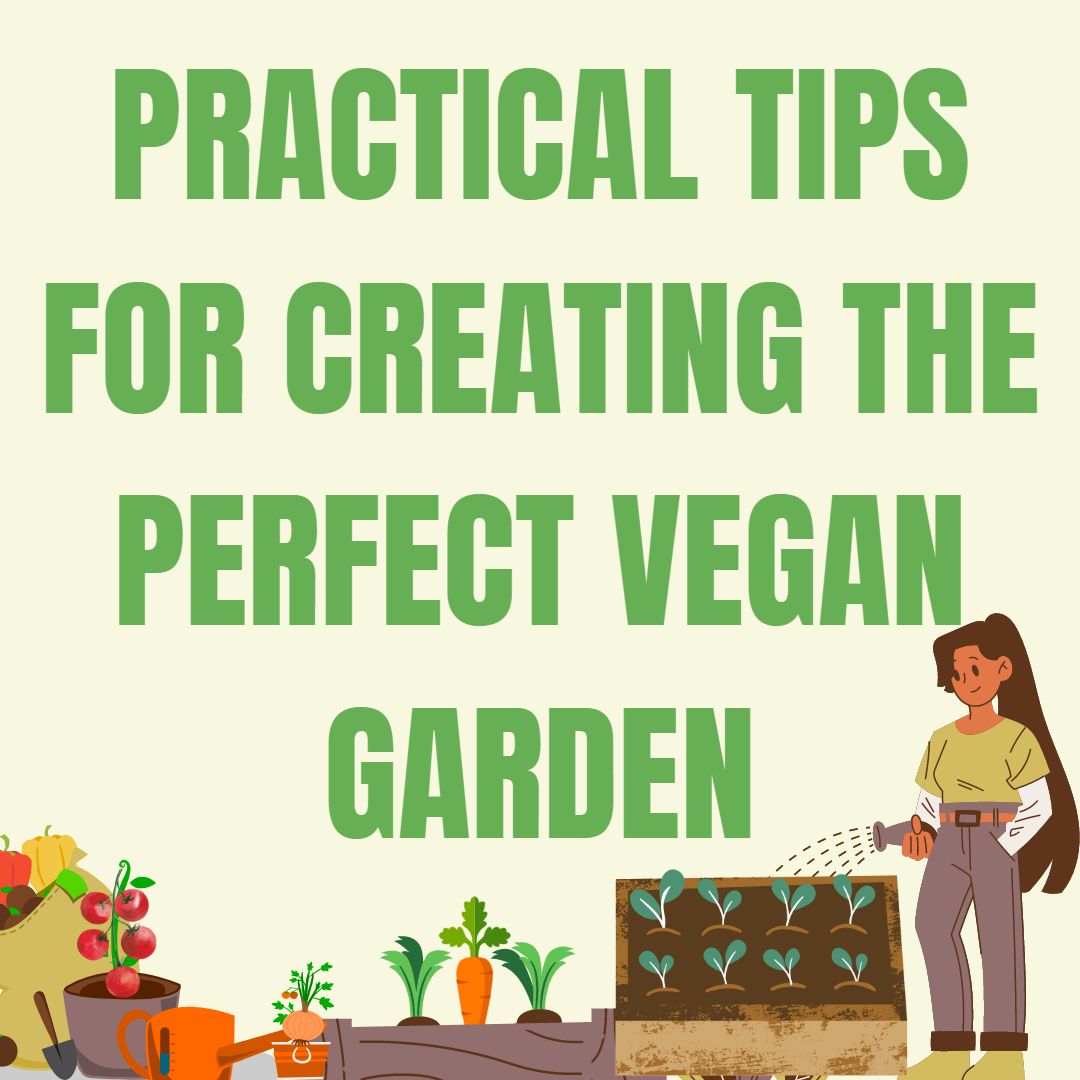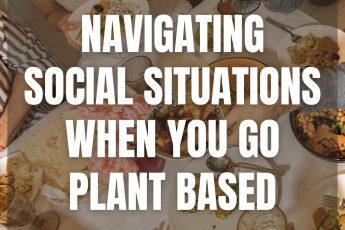It’s “National Gardening Week” and as a vegan, the importance of fresh vegetables for sustaining life cannot be overstated. What better way to embrace this celebration than by cultivating your own vibrant vegan garden? Discover the joy of growing your own produce, free from animal-derived fertilizers or pesticides, and relish in the satisfaction of harvesting homegrown, plant based goodness. A vegan garden can come in all shapes and sizes, from a stand-alone garden, a raised bed, a container, or a simple plant on a window sill – you can’t go wrong and you have to start somewhere. Dive into the world of a vegan garden during this special week and nourish both your body and the planet with your own abundant vegetable haven.
Benefits of Vegan-Friendly Gardening
Gardening is an activity that allows us to connect with nature and enjoy the beauty of the outdoors. But did you know that there are many benefits to making your garden vegan-friendly? For starters, it’s a great way to reduce your carbon footprint. By using vegan-friendly practices, you can reduce the amount of waste and harmful chemicals that are released into the environment. Additionally, vegan-friendly gardening can help to conserve water, reduce soil erosion, and promote biodiversity.
Another benefit of vegan-friendly gardening is that it can help to promote a healthy lifestyle of living a Whole Foods Plant Based Diet (WFPB). We have some fantastic WFPB EASY PLANT BASED RECIPES that are simple to prepare and that the whole family will love. By growing your own fruits and vegetables, you can ensure that you are eating fresh, organic produce that is free from harmful pesticides and chemicals. Plus, gardening is a great way to get some exercise and reduce stress.
Principles of a Vegan Garden
So what exactly does it mean to make your garden vegan-friendly? At its core, a vegan garden is about respecting and protecting all forms of life. This means avoiding the use of any animal-derived products, such as bone meal or fish emulsion, and focusing on natural, plant based alternatives instead.
Vegan-friendly gardening also involves using sustainable practices, such as composting and water conservation. These practices not only benefit the environment but also help to promote healthy soil and plant growth.
Creating the Perfect Space
Gardening doesn’t have to be extravagant or elaborate. In fact, it can be as simple as a container perched on a rooftop or a raised bed nestled in a small backyard. The beauty of gardening lies in its versatility and adaptability to fit your personal space and needs. Whether you have limited room or resources, what truly matters is finding a gardening setup that works for you. By creating a nurturing environment, regardless of its size or location, you can embark on a fulfilling journey of cultivating your own plants and reaping the rewards of your efforts. Remember, no matter how modest or humble, your garden is a testament to your passion and commitment to nature and our planet.
Choosing the Right Seeds or Plants
When it comes to choosing seeds and plants for your garden, it’s important to select varieties that are well-suited to your climate and soil type. Look for plants that are disease-resistant and low maintenance, as these will require less water and fertilizer.
Soil Preparation, Fertilizer, and Compost Options
Preparing your soil is an essential step in creating a healthy and productive garden. One of the best ways to do this is by adding compost to your soil. Compost is a natural, plant based fertilizer that provides your soil with essential nutrients and helps to improve its texture and water-holding capacity.
To make your own compost, start by collecting kitchen scraps, such as fruit and vegetable peels, eggshells, and coffee grounds. Mix these scraps with yard waste, such as leaves and grass clippings, and allow the mixture to decompose over time. Once the compost is ready, simply spread it over your garden beds and mix it into the soil. Check out this informative Better Homes & Gardens article “HOW TO MAKE COMPOST TO FEED YOUR PLANTS AND REDUCE WASTE.”
If you don’t have the ability to compost, you can consider trying an off-the-shelf option, like Mushroom Compost commercially available at most big box stores. In addition to using compost, there are other natural, plant based fertilizers that you can use to promote healthy plant growth. For example, you can use alfalfa meal, cottonseed meal, or soybean meal, all of which are high in nitrogen and other essential nutrients.
Another way to fertilize your plants is by using mulch. Mulch helps to retain moisture in the soil, suppress weeds, and provide your plants with essential nutrients as it breaks down over time. Some great options for mulch include shredded leaves or straw.
Pest Control Without Harming Animals
Dealing with pests can be a challenge for any gardener, but it’s important to find solutions that are both effective and animal-friendly. One great option for pest control is companion planting. This involves planting certain plants together that are known to repel pests or attract beneficial insects.
For example, planting marigolds next to your tomatoes can help to deter nematodes, while planting basil next to your peppers can attract bees and other pollinators. Additionally, using organic pest control methods, such as neem oil or insecticidal soap, can help to keep pests at bay without harming animals.
Water Conservation For a Vegan Garden
Conserving water is an important part of any eco-friendly gardening practice. One way to do this is by using drip irrigation or soaker hoses, which deliver water directly to your plant’s roots and minimize water waste.
You can also reduce water usage by using mulch to retain moisture in the soil and by choosing plants that are native to your area and therefore more well-adapted to the local climate. You can even make your garden sustainable by capturing the rainwater and filtering it through the soil, helping to reduce runoff and replenish groundwater.
Celebrating National Gardening Week: Events and Activities
National Gardening Week is a great time to get involved in your local gardening community and learn more about sustainable gardening practices. Many cities and towns host events, such as plant swaps or community garden workdays, that provide opportunities to connect with other gardeners and share tips and ideas.
You can also participate in online events, such as webinars or virtual garden tours, and follow gardening blogs and social media accounts to stay up-to-date on the latest trends and tips.
If all else fails and you can’t plant a garden, consider joining a local CSA – Community Supported Agriculture where you opt into a local farm co-op and get farm fresh fruits and veggies that way. Check out LOCALHARVEST.ORG to find your local CSA and get started.
Celebrating the Joys of Gardening While Respecting the Planet
With these vegan garden tips, you can create a beautiful and sustainable garden that will make both you and the planet happy. By focusing on natural, plant based practices and choosing eco-friendly products and methods, you can reduce your environmental impact and promote a healthy and vibrant garden.
So this National Gardening Week, get outside, get your hands dirty, and enjoy the joys of gardening while respecting the planet and all the creatures that call it home.






